Does Lysol Kill Mold
Does Lysol Effectively Eliminate Mold and Prevent Its Regrowth?
Mold is a common and unwanted guest in many homes and buildings, posing serious health risks and causing damage to property. As a result, effective mold removal is essential to maintain a safe and healthy living environment.
One popular household disinfectant that people often wonder about its effectiveness in tackling mold is Lysol. But does Lysol kill mold? In this article, we will explore the effectiveness of Lysol in killing mold, its proper application, and alternative mold removal methods.
Key Takeaways
- Lysol can effectively kill mold on non-porous surfaces, but its performance on porous materials is limited.
- The disinfectant is most effective against common household molds, such as Aspergillus and Penicillium species.
- When using Lysol for mold removal, follow proper application guidelines, use appropriate personal protective equipment (PPE), and ensure good ventilation.
- Lysol should not be considered a comprehensive solution for mold removal, as it might not eradicate all types of mold or address underlying moisture issues.
- Alternative mold removal methods include DIY solutions (such as vinegar, baking soda, hydrogen peroxide, and tea tree oil), commercial removal products, and professional mold remediation services. If you are dealing with an extensive mold infestation, consider contacting Mold Busters for expert help.
10% OFF
Schedule services online and save!
Available for home owners, landlords, businesses & property managers. If you are a tenant, please call to schedule your appointment.
YOUR PROMO CODE
MARCH10
Valid until March 31st, 2023
Lysol: A Popular Household Disinfectant
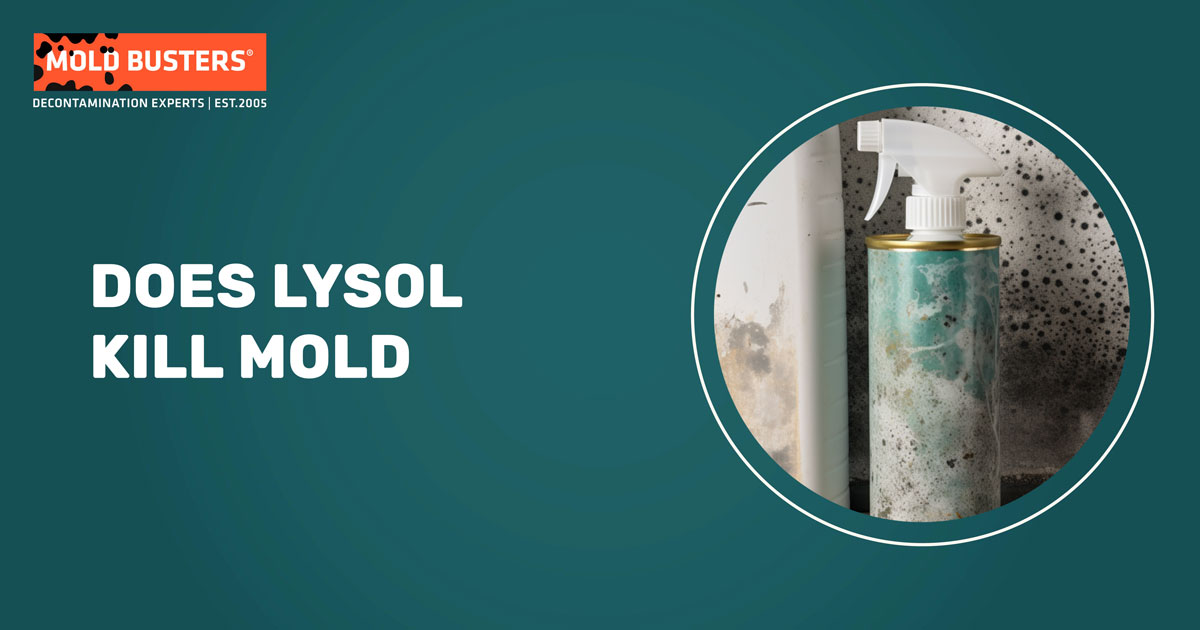
Lysol is a well-known and widely used household disinfectant, recognized for its ability to kill a variety of germs, bacteria, and viruses. As a multi-purpose cleaner, Lysol can be used on a range of surfaces, from countertops and doorknobs to sinks and bathroom fixtures. Its powerful formula is designed to eliminate common household pathogens, providing a cleaner and healthier environment for you and your family.
Description of Lysol and its Primary Uses
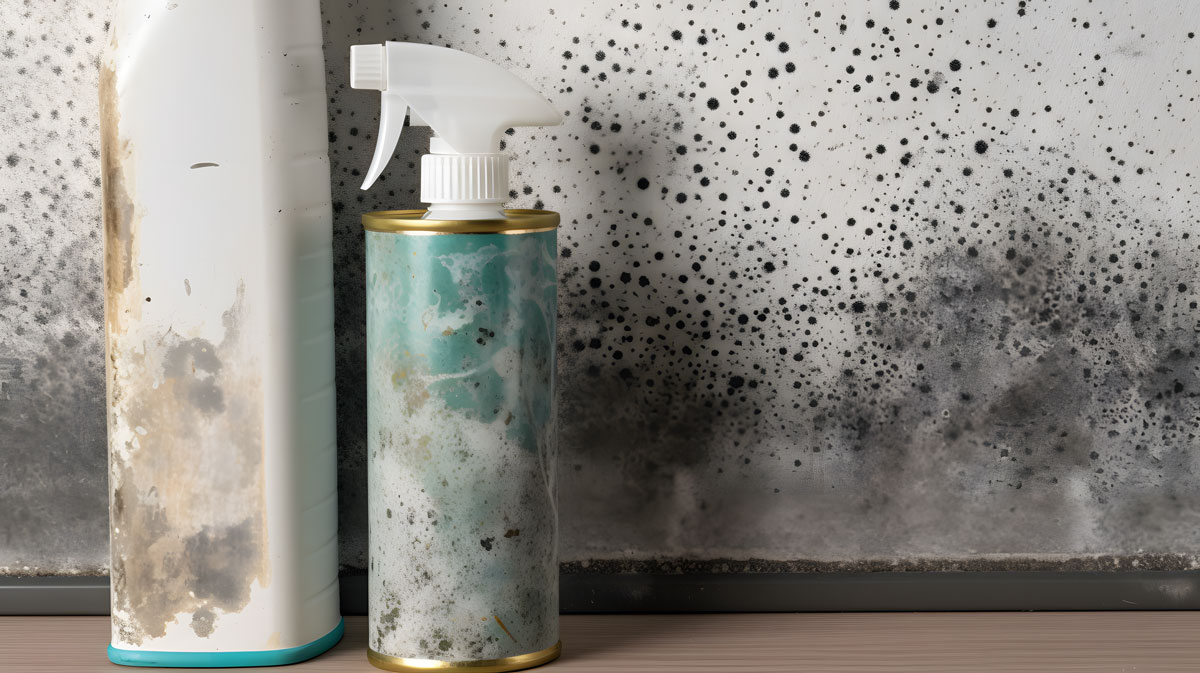
Lysol is a brand that produces a variety of cleaning and disinfecting products, such as disinfectant sprays, wipes, and multi-surface cleaners. Lysol’s disinfectant spray is a popular choice for its ease of use and ability to target a wide range of pathogens, including bacteria, viruses, and fungi. The primary uses of Lysol products are to clean and disinfect surfaces, kill germs, and deodorize living spaces, making them essential for maintaining a hygienic home.
Antifungal Properties of Lysol
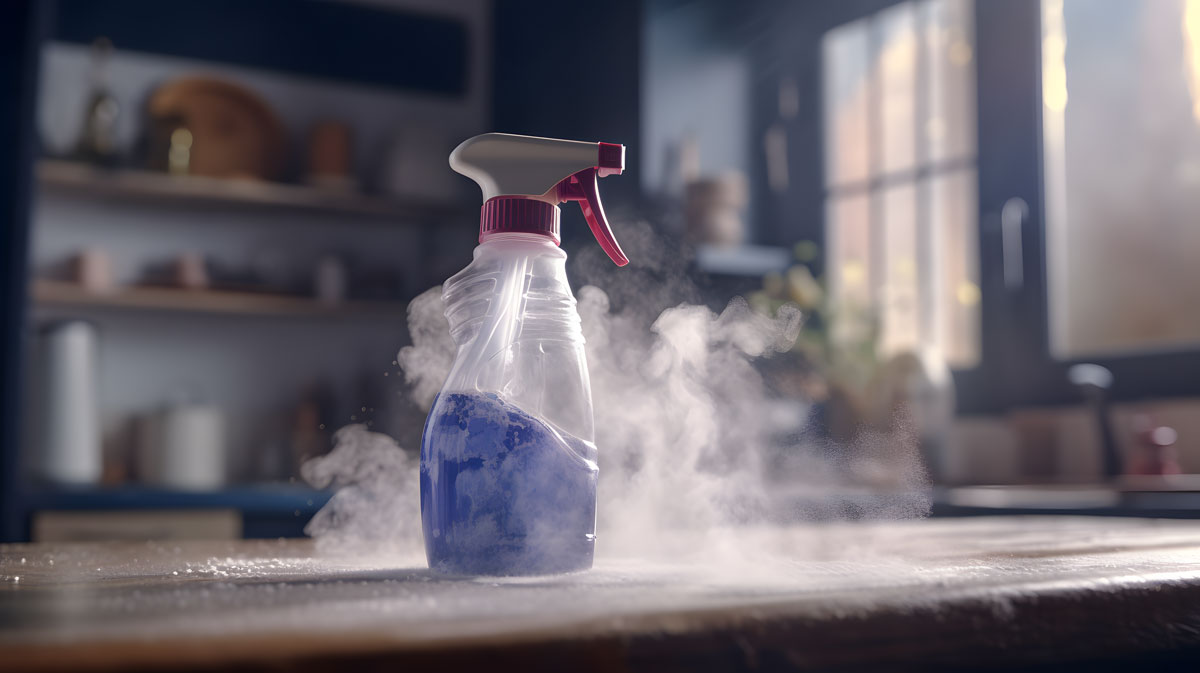
One of the key advantages of Lysol is its antifungal properties, which allow it to combat mold and mildew effectively. Lysol’s active ingredients work to kill mold spores on contact, preventing further growth and spread. This makes Lysol a useful tool in the fight against mold, particularly on non-porous surfaces where it can be most effective. However, it is essential to note that Lysol may not be suitable for all surfaces or types of mold, and in some cases, professional removal services may be required to address more severe infestations.
The Effectiveness of Lysol in Killing Mold
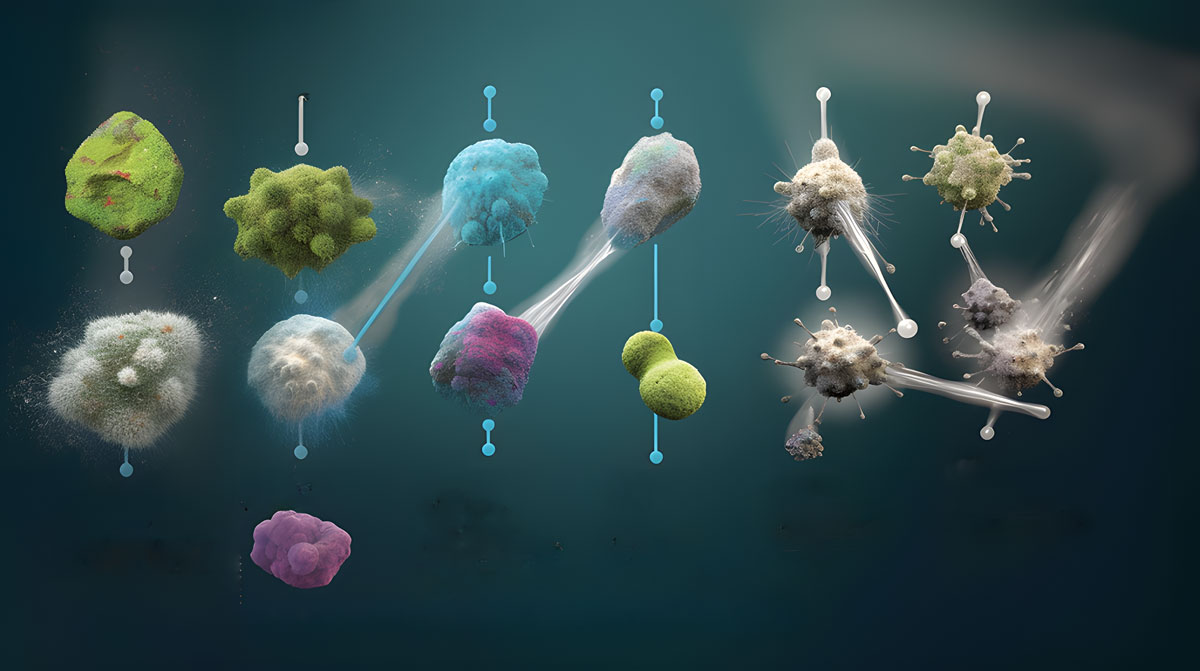
Lysol’s ability to kill mold spores and prevent mold growth is well-documented. However, its effectiveness largely depends on the surface being treated. On hard, non-porous surfaces, Lysol disinfectant spray can kill mold and remove any visible mold. It can also prevent mold regrowth for up to a week when used correctly.
Lysol’s Performance on Non-Porous Surfaces
Lysol is effective in killing mold and mildew on non-porous surfaces, such as countertops, glass, tile, and metal. Its disinfectant properties eliminate mold spores and prevent them from multiplying. When used properly, Lysol can kill mold on hard surfaces, leaving them clean and free of potentially harmful spores.
Limitations of Lysol on Porous Surfaces
While Lysol is effective in killing mold on non-porous surfaces, it struggles to penetrate porous materials, such as wood, drywall, and fabrics. Mold spores can become deeply embedded in these materials, making it difficult for Lysol to reach and eliminate them. In these cases, alternative removal methods, such as professional remediation, may be necessary to fully address the problem.
| Mold Removal Method | Effectiveness | Limitations | Safety Precautions | Suitable for |
|---|---|---|---|---|
| Lysol | High | Limited on porous surfaces | PPE, proper ventilation | Non-porous surfaces |
| Vinegar | Moderate | Less effective on certain types of mold | Minimal | Most surfaces |
| Baking Soda | Moderate | May not remove deeply ingrained mold | Minimal | Most surfaces |
| Hydrogen Peroxide | High | Can bleach certain surfaces | Gloves, eye protection, ventilation | Non-porous surfaces |
| Tea Tree Oil | High | Can be expensive | Dilution, gloves, eye protection | Most surfaces |
| Commercial Mold Removers | High | May contain harsh chemicals | Follow manufacturer’s instructions | Varies by product |
| Professional Mold Removal | Highest | More expensive than DIY methods | Handled by professionals | All types of surfaces |
Does Lysol Kill Mold Spores in the Air?
Lysol disinfectant spray can help to reduce the number of mold spores in the air by eliminating them on surfaces. However, it is not specifically designed to target airborne mold spores. For better air quality control, it is recommended to use air purifiers with HEPA filters, which are specifically designed to capture and remove mold spores from the air. Regularly cleaning your living spaces, maintaining proper ventilation, and controlling humidity levels can also help in preventing mold spores from becoming airborne.
Types of Mold Lysol Can Effectively Eliminate – Can it Fight Black Mold?
Lysol is effective in killing common household molds, including Aspergillus, Cladosporium, and Penicillium. However, Lysol disinfectant spray may have limited effectiveness against black mold (Stachybotrys chartarum) on non-porous surfaces. Although Lysol can eliminate a wide range of fungi, it may not be as potent against more stubborn species like black mold. Its effectiveness also depends on the type of surface and the extent of mold growth.
For non-porous surfaces like tiles, glass, and sealed countertops, Lysol might provide some level of mold reduction. However, on porous surfaces like wood, drywall, or fabrics, Lysol may not penetrate deeply enough to eliminate the mold completely.
Given the potential health risks associated with black mold, it is recommended to consult a professional mold remediation service for proper removal and prevention of recurrence, especially in cases of extensive mold growth or when dealing with more resistant mold species.
Comparing Lysol to Other Mold Removal Methods
Lysol is a convenient and effective option for tackling mold on hard, non-porous surfaces, but it is not the only method available. Other DIY removal options include bleach, hydrogen peroxide, baking soda, and vinegar. While these methods can be effective, they also come with their own limitations and may not provide a long-term solution for mold problems.
In cases of extensive mold infestations, professional remediation services, such as Mold Busters, offer comprehensive solutions to identify, remediate, and prevent mold growth, ensuring a safer and healthier living environment.
Using Lysol for Mold Removal: Application and Safety Precautions
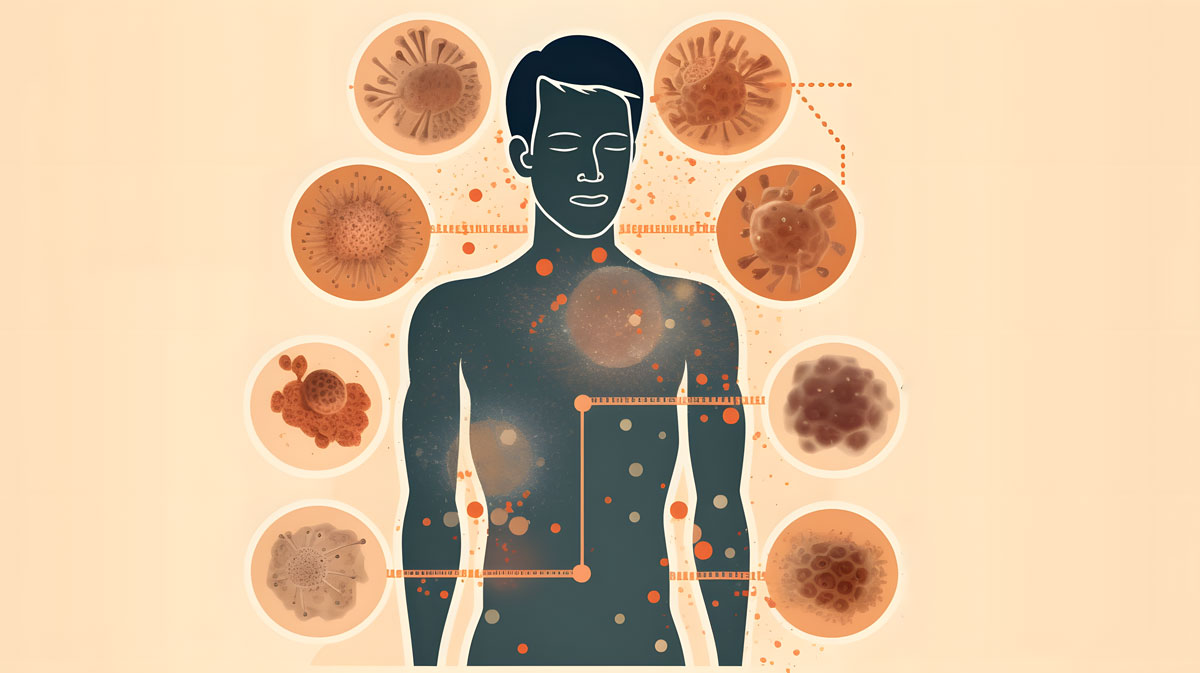
When using Lysol, it’s important to follow the proper application process and take necessary safety precautions to ensure the most effective results and protect your health.
Proper Application of Lysol
To use Lysol for mold removal, follow these steps:
-
Prepare the area by removing any loose debris or dust from the surface.
-
Shake the Lysol disinfectant spray can well and hold it 6-8 inches away from the surface.
-
Spray the affected area thoroughly, ensuring that it is completely covered with Lysol.
-
Allow the Lysol to sit on the surface for the recommended contact time, typically 10 minutes, to effectively kill mold spores.
-
Wipe the surface with a damp cloth or sponge to remove the dead mold spores and any residue.
For stubborn mold stains or heavily affected areas, you may need to repeat the process to achieve the best results.
Necessary Safety Precautions and Personal Protective Equipment (PPE)
When using Lysol for mold removal, it’s crucial to take the necessary safety precautions and wear appropriate personal protective equipment (PPE) to protect yourself from exposure to mold spores and chemicals. These precautions may include:
-
Wearing rubber gloves to protect your hands from the chemicals and mold spores.
-
Wearing a mask or respirator to avoid inhaling mold spores or Lysol fumes.
-
Using protective eyewear to prevent contact with mold spores or chemicals.
-
Wearing long sleeves and pants to minimize skin exposure to mold and chemicals.
Importance of Proper Ventilation During Use
Proper ventilation is essential when using Lysol for mold removal. The chemicals in Lysol can cause respiratory irritation and other health issues if inhaled in high concentrations. Make sure to open windows and doors or use fans to ensure adequate air circulation during and after the removal process. This will help disperse any fumes and protect you and your family from potential health risks associated with the use of Lysol and exposure to mold spores.
Worried About Mold? Get a Free Inspection!
While Lysol can kill mold on non-porous surfaces, it may not be a comprehensive solution. For a thorough and effective mold assessment, contact Mold Busters for a free virtual mold inspection. Our experts provide a detailed evaluation and a plan to keep your home safe and mold-free. Act now to protect your space!
Book Your Free Virtual Inspection NowAlternative Methods
When tackling mold in your home, it’s essential to explore various mold removal methods to find the most effective solution for your specific situation.
Here, we’ll discuss alternative options for mold removal, including DIY solutions, commercial products, and professional remediation services.
| Surface | Effectiveness of Lysol | Notes |
|---|---|---|
| Fabric | Limited | Lysol may not be very effective on porous surfaces like fabric, as it cannot penetrate deeply enough to eliminate mold spores completely. It may provide some level of surface cleaning, but professional mold remediation is recommended for heavily infested fabrics. |
| Carpet | Limited | Similar to fabric, Lysol has limited effectiveness on porous surfaces like carpets. It may help in surface cleaning, but the mold spores may remain embedded deep within the carpet fibers. Professional mold remediation or carpet replacement is advised for severe mold infestations. |
| Air Conditioner | Moderate | Lysol can be effective in eliminating mold on hard, non-porous surfaces in air conditioners, such as the metal housing, plastic components, or filters. However, it may not be effective in eliminating mold from foam insulation or other porous materials. Regular maintenance and cleaning of air conditioners can help prevent mold growth. |
| Wood | Limited | Lysol may have limited effectiveness on porous surfaces like wood. While it can help with surface cleaning, it may not eliminate mold spores that have penetrated deeper into the wood. Sealing or painting wood surfaces can help prevent mold growth, but professional mold remediation may be necessary for extensive mold infestations. |
| Tiles | High | Lysol is effective on non-porous surfaces like tiles, which are commonly found in bathrooms and kitchens. Regular cleaning with Lysol can help prevent mold and mildew growth on these surfaces. |
| Glass | High | Lysol is effective on non-porous surfaces like glass. Regular cleaning with Lysol can help prevent mold and mildew growth on windows, glass doors, and other glass surfaces. |
| Sealed Countertops | High | Lysol is effective on non-porous surfaces like sealed countertops, including granite, quartz, and laminate. Regular cleaning with Lysol can help prevent mold and mildew growth on these surfaces. |
| Drywall | Limited | Lysol may have limited effectiveness on porous surfaces like drywall. While it can help with surface cleaning, it may not eliminate mold spores that have penetrated deeper into the material. Professional mold remediation or replacement of the affected drywall may be necessary for extensive mold infestations. |
| Concrete | Moderate | Lysol may be moderately effective on concrete surfaces. Although concrete is porous, it is denser and less permeable than other porous materials. Lysol may help clean surface mold, but it may not penetrate deeply enough to eliminate all mold spores. Sealing concrete surfaces can help prevent mold growth. Professional mold remediation may be necessary for extensive mold infestations. |
DIY Solutions
For minor mold infestations, several DIY mold removal solutions can be effective. Some common household items and natural remedies include:
-
Vinegar: A natural antimicrobial agent, vinegar can kill mold on non-porous surfaces when applied undiluted.
-
Baking soda: A mild, non-toxic option that can be mixed with water to create a paste for scrubbing away mold.
-
Hydrogen peroxide: A powerful oxidizer, hydrogen peroxide can effectively kill mold spores on various surfaces.
-
Tea tree oil: A natural antifungal, tea tree oil can be diluted in water and sprayed onto moldy surfaces to eliminate mold growth.
Commercial Products
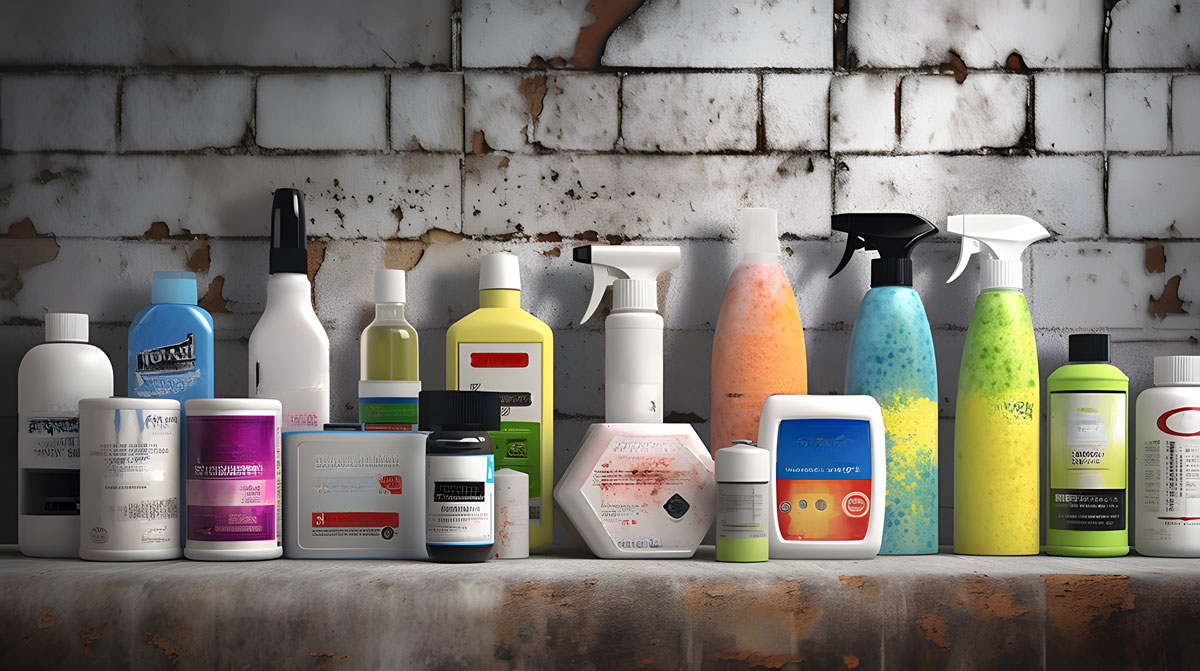
Mildew removers and mold cleaners available in stores can offer stronger solutions for tackling mold. However, they may contain harsh chemicals and require additional safety precautions.
When to Consider Professional Mold Remediation Services
In some cases, DIY solutions and commercial products may not be enough to eliminate mold entirely, particularly if the infestation is extensive or has penetrated porous materials. In these situations, it’s essential to consider hiring professional mold remediation services. Professionals have the expertise, equipment, and experience to identify the root cause of the mold problem, remove the mold safely, and implement preventive measures to avoid future growth. If you suspect a serious mold issue in your home, don’t hesitate to contact Mold Busters for expert assistance.
Our Services
Our most popular services include:
🔎 Request a Free Consultation
FAQ
Yes, Lysol can help prevent mold growth on hard, non-porous surfaces when used correctly. By killing mold spores and removing any visible mold, Lysol can provide a temporary barrier against mold regrowth for up to a week.
Lysol can be effective in killing black mold on hard, non-porous surfaces. However, its effectiveness may be limited on porous or soft surfaces, where alternative methods might be more suitable.
When using Lysol to remove mold, ensure proper ventilation, wear rubber gloves, goggles, and a mask to protect yourself from direct contact with mold spores and Lysol chemicals.
Alternative methods include DIY solutions like baking soda, hydrogen peroxide, and vinegar, commercial mold removal products, and professional mold remediation services.
It is recommended to hire a professional mold remediation service like Mold Busters in cases of severe mold infestation, when DIY or commercial mold removal methods are insufficient, or when the mold problem poses a significant health risk to occupants.
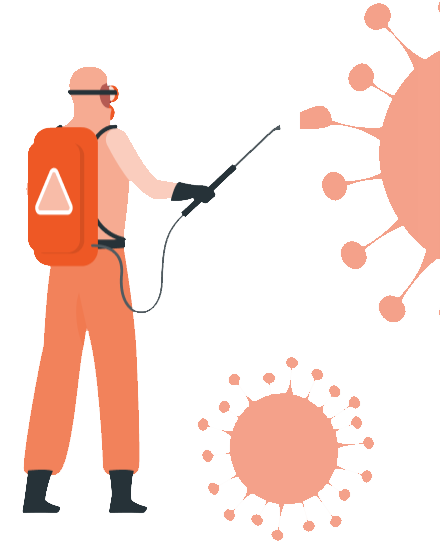
Conclusion
In summary, Lysol can effectively kill mold spores and prevent mold growth on hard, non-porous surfaces. However, its efficacy may be limited on porous or soft surfaces, where alternative methods might be more suitable. It is crucial to assess the specific mold problem and consider the surface being treated before choosing the best course of action.
When using Lysol for mold removal, it is important to follow proper application procedures and safety precautions to protect yourself from harmful chemicals and mold spores. For severe mold infestations, it is always advisable to seek professional help from a trusted mold remediation service like Mold Busters to ensure the mold is thoroughly removed and the affected area is properly cleaned.
Remember to maintain a clean and dry living environment, as this will help prevent mold growth and minimize health risks associated with mold exposure. By regularly cleaning damp areas, ensuring proper ventilation, and addressing excess moisture, you can effectively avoid mold problems and create a safer, healthier space for you and your loved ones.
Choose Mold Busters for a Safe and Thorough Mold Remediation
While Lysol can be effective in removing mold on hard, non-porous surfaces, DIY solutions may not be suitable for all mold issues. For more severe mold infestations or if you’re unsure about the best course of action, consider contacting Mold Busters. Our team of experienced professionals offers a wide range of services to help you tackle mold problems effectively and safely.
To start, take advantage of our Free Virtual Mold Inspection service, which allows you to get a quick and accurate assessment of your mold problem. If necessary, we can proceed with a more in-depth Mold Testing service to identify the type and extent of mold growth in your home or office.
Once the mold issue is identified, our team will provide you with the most efficient Mold Removal services tailored to your specific situation. Mold Busters proudly serves both the Ottawa and Montreal areas, ensuring our clients receive the highest level of care and expertise.
Don’t let mold affect your health and the structural integrity of your property. Contact Mold Busters today for a comprehensive solution to all your mold-related concerns.